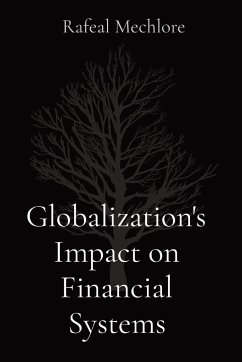Globalization, the process of increased interconnectedness and interdependence among countries, has had a profound impact on financial systems worldwide. This phenomenon, which gained momentum in the late 20th century, has brought about significant changes in the way financial markets operate, institutions function, and economies grow. Here, we explore the multifaceted impact of globalization on financial systems.First and foremost, globalization has facilitated the flow of capital across borders. Financial markets have become more accessible to international investors, allowing for the allocation of funds to a wider range of investment opportunities. This has led to increased liquidity and greater diversification possibilities for investors, ultimately contributing to more efficient capital markets.Furthermore, globalization has led to the integration of financial institutions on a global scale. Major banks and financial corporations now operate in multiple countries, providing a wide array of financial services globally. This integration has increased competition, driven innovation, and improved the accessibility of financial services for individuals and businesses.However, globalization has also exposed financial systems to increased risk and volatility. The global financial crisis of 2008 demonstrated how interconnectedness can transmit shocks across borders rapidly. The collapse of financial institutions in one country can have far-reaching consequences on the stability of financial systems worldwide.Additionally, globalization has raised questions about regulatory and supervisory frameworks. The need for consistent and coordinated regulation across borders has become paramount to mitigate systemic risks and ensure the integrity of global financial systems. International organizations, such as the International Monetary Fund (IMF) and the Financial Stability Board (FSB), play a crucial role in fostering cooperation among nations in this regard.
Hinweis: Dieser Artikel kann nur an eine deutsche Lieferadresse ausgeliefert werden.
Hinweis: Dieser Artikel kann nur an eine deutsche Lieferadresse ausgeliefert werden.







